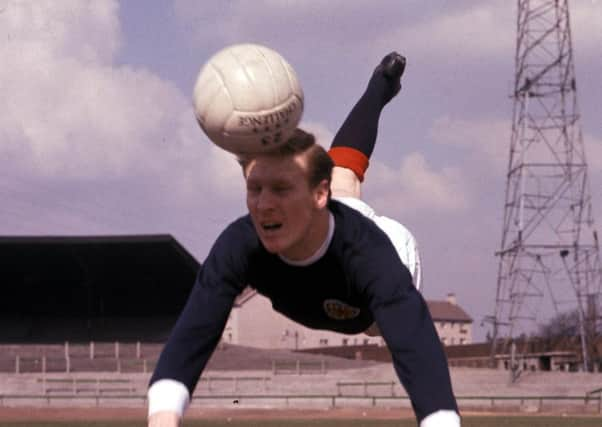Call for ban on children heading footballs after research dementia link


The football and technical advisory panels of the sport’s law-making body, the International Football Association Board, met in Zurich yesterday to discuss how head injuries are treated, which included looking at the possibility of concussion substitutes.
A move comes after a Glasgow University study published on Monday found footballers were three-and-a-half times more likely to suffer from degenerative brain conditions than the general population. The research looked at 7,676 Scottish footballers born between 1900 and 1976 who were matched with 23,000 people from similar areas and backgrounds. Within that, there was a four-fold increase in incidence of MND among the footballer group,
Advertisement
Hide AdAdvertisement
Hide AdThe panels recommended that due to “the complex nature of assessing and managing concussion at different levels of the game”, an expert group should be established to investigate further.
IFAB said in a media release: “The panels agreed that any solutions would have to take account of both player welfare and the need to ensure sporting fairness.”
The issue of ‘sporting fairness’ centres around concerns that concussion substitutes could be deployed for tactical reasons rather than concerns over player welfare.
The idea would be that the substitute would come on in the event of a player suffering a head injury which required assessment, and then return to the bench if the injured player was passed fit to continue. Otherwise, the substitute would remain on the pitch.
A former player yesterday called for an immediate heading ban for children aged 14 and under and for any player who suffers a head injury to be substitute permanently substituted.
Lenny Johnrose, 49, whose career included spells at Blackburn, Bury, Burnley and Swansea, was diagnosed with motor neurone disease in March 2017.
He said it “sickens” him that no such restrictions on heading are in place in this country, as they are for children under 11 in the United States.
“At least in America they have done something straight away. We’re taking chances with people’s lives and it does sicken me,” he said.
Advertisement
Hide AdAdvertisement
Hide Ad“I’m going to spend the next few weeks, months, however long it takes speaking to as many authorities as I can to try and get them to do something about it. I don’t see the point in taking that risk. It’s not even a big loss, to say, ‘At your age, 14 and under, you’re not heading the ball’. It won’t cause any harm or damage to anybody.”